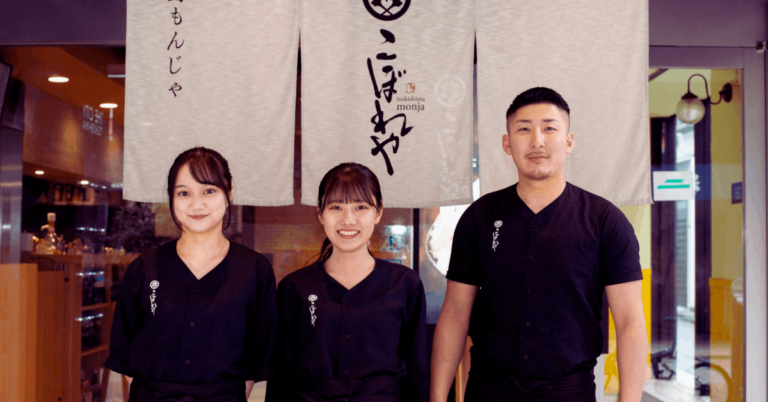Japan’s rapidly aging population has led to an urgent demand for caregivers. By 2030, one in three residents will be over 65, creating a surge in the need for caregiving professionals in nursing homes and similar facilities.
The aging population has led to a workforce shortage in caregiving. Japan’s healthcare ministry projects a need for 2.53 million care workers by 2025, prompting the government to recruit foreign nationals for these roles.
This guide provides essential information for those considering caregiver careers in Japan, covering the skills needed, available job search resources, and expected salary ranges.
Who is a Caregiver?
A caregiver or care worker provides essential support to individuals who struggle with daily tasks—typically elderly individuals, those with disabilities, or people with chronic illnesses.
While some caregivers are family members or neighbors, professional caregivers are increasingly sought after in Japan due to the country’s aging population. In Japanese, a caregiver is known as 介護士 (かいごし, kaigoshi) or simply 介護 (かいご, kaigo).
Moreover, these are the reasons why you should apply and work as a caregiver in Japan:
High Demand and Job Security
Japan’s rapidly aging population creates a high demand for skilled caregivers.
The Ministry of Health, Labour and Welfare estimates a need for approximately 2.53 million caregivers by 2025 to support the elderly population. This demand offers job stability for those entering the field.
Competitive Salary
Certified caregivers in Japan earn an average monthly salary of ¥220,000 to ¥250,000 ($2,000 to $2,300), depending on experience and location. Many employers offer additional financial incentives, including bonuses.
Career Growth
Japan’s caregiving industry provides numerous advancement opportunities. Caregivers can specialize in fields like dementia care, palliative care, or advance into management roles, allowing for both personal and professional development.
Cultural Exchange
Working in caregiving offers the chance to engage deeply with Japanese culture, language, and traditions while making a meaningful difference in the lives of those who need care.
Caregiver Jobs in Japan: Essential Support for Daily Needs
A caregiver, or 介護士 (かいごし kaigoshi) in Japanese, plays a vital role in assisting individuals who struggle with daily tasks. In Japan, caregivers support the elderly, people with disabilities, and those recovering from illness.
Work Environments for Caregivers in Japan
Caregivers in Japan primarily work in nursing homes, providing care in shifts to support multiple residents. Others offer private or home-based care tailored to a single person’s needs.
Caregiver Duties and Responsibilities in Japan
Caregivers in Japan provide essential support to patients through:
- Assisting with daily needs like bathing and feeding.
- Updating medical records and managing medications.
- Scheduling medical appointments.
- Monitoring health conditions closely.
- Ensuring medications are taken correctly.
- Supporting mobility within and outside the home.
- Helping with personal hygiene and care tasks.
- Assisting clients with physical therapy exercises.
- Planning and preparing meals, adapting to clients’ capabilities.
- Performing shopping tasks or accompanying clients.
- Handling light housekeeping tasks clients find challenging.
- Offering companionship that is supportive and engaging.
- Reporting any unusual incidents or concerns.
- Acting promptly and responsibly during emergencies.
Salary of a Caregiver in Japan
Caregivers in Japan earn between JPY 120,000 and JPY 185,000 monthly, with pay varying based on qualifications, employer, and location.
Caregivers in the Technical Intern Training Program (TITP) are generally on the lower end, reflecting limited experience and certification. Monthly earnings include basic wage, night shift bonuses, overtime bonuses, and transport fees.
Regular night shifts significantly raise pay. Annual raises are standard, and earning a Certified Caregiver License can further increase salary. Some companies provide additional allowances for skill development.
How to Start a Career as a Caregiver in Japan
Four main pathways allow individuals to start a caregiving career in Japan: the Technical Intern Training Program (TITP), Specified Skilled Worker (SSW), Economic Partnership Agreement (EPA), and the Nursing Care Visa.
Each pathway has specific processes, eligibility criteria, and stay durations.
Technical Intern Training Program (TITP)
The Technical Intern Training Program (技能実習制度, Ginō Jisshū Seido) trains foreign nationals in caregiving skills, primarily targeting those from developing countries.
The program, overseen by the Japan International Training Cooperation Organization (JITCO) and established in 1993, allows foreign caregivers to work in Japan for up to five years.
Program Stages and Advancement
TITP caregivers move through three stages:
- Technical Intern (i): 1st Year
- Technical Intern (ii): 2nd and 3rd Years
- Technical Intern (iii): 4th and 5th Years
Advancement requirements include:
- Technical Intern (i) must pass the JLPT N3 in the second year and complete written and practical exams.
- To reach Technical Intern (iii), an additional practical exam is required.
After completing stages 2号 or 3号, interns may move to Specified Skilled Worker status in caregiving, enabling longer stays and potential permanent caregiving roles after earning a certified caregiver license.
Requirements for TITP
- Age: 18+
- Japanese Language: JLPT N4 or equivalent
- Selection Process: Written tests and interviews
- Eligibility: Must be a citizen of a partner country (such as Bangladesh, China, India, Indonesia, etc.)
Training Focus for Caregivers in TITP
The TITP focuses on skill-building and meeting specific program criteria. Caregivers under this program operate within a training framework focused on skill acquisition rather than standard job duties.
Hosting companies provide ongoing support throughout the intern’s stay, ensuring successful program completion and a smooth experience in Japan.
Essential Skills for Caregivers in Japan
Successful caregivers should have:
- Strong communication skills (written and verbal)
- Patience and empathy
- Skills in monitoring and observation
- Effective interpersonal and time management abilities
- Flexibility and strong organizational skills
- Problem-solving abilities and a positive outlook
- High reliability and ethical standards
- Knowledge of emergency response (CPR, etc.)
- Physical endurance for demanding tasks
To apply, click this link.
Essential Visa Programs and Requirements
You need to prepare your visa and requirements to apply.
Specified Skilled Worker (SSW) Program
The Specified Skilled Worker (SSW) visa allows foreign caregivers to address Japan’s caregiver shortage. Established in 2019, this visa permits up to 5 years of work in the country.
While caregiver certification is not mandatory, it can enhance prospects for long-term employment. The SSW visa requires specific caregiving skills and experience, making it distinct from general internship programs.
SSW Requirements
- Age 18 or older
- Relevant caregiving skills and successful completion of a qualification exam (exemptions for certain trainees)
- Japanese language proficiency for both daily life and caregiving, verified through testing (exemptions for specific trainees)
Economic Partnership Agreement (EPA) Program
The EPA program supports caregiver roles for qualified candidates from Indonesia, the Philippines, and Vietnam.
Applicants complete initial language training in their home country, followed by further training in Japan. To continue working as certified caregivers, participants must pass the National Japanese Licensure Exam within four years.
EPA Requirements
- Age 35 or younger
- Completion of a relevant nursing or tertiary education program (3-4 years)
- Certification as a care worker in the home country
- Success in a selection process assessing caregiving skills, aptitude, and language proficiency
Nursing Care Visa Program
This visa is available to international students who complete caregiving training within Japan.
To qualify, students must complete either a 3-year diploma or a 4-year bachelor’s program in caregiving and pass Japan’s National Caregiver Certification Exam. This program provides a pathway to job opportunities for certified caregivers trained in Japan.
Nursing Care Visa Requirements
- High school diploma and JLPT N2 proficiency or equivalent
- Graduation from a recognized nursing training school in Japan
- Passing the National Caregiver Certification Exam and obtaining the Caregiver Registration Certificate
These visa programs provide structured paths to caregiver roles in Japan, each with distinct requirements that ensure a skilled, prepared workforce.
Conclusion
Caregiver jobs in Japan offer a stable, high-demand career path due to the country’s rapidly aging population. With multiple entry programs—including TITP, SSW, EPA, and Nursing Care Visa—there are various ways to start a caregiving career.
Each program has specific requirements so applicants can select the best fit for their skills and goals. Proficiency in Japanese is essential, as effective communication is crucial in caregiving roles.
A career as a caregiver in Japan not only offers job security and competitive pay but also the chance to make a meaningful impact in supporting Japan’s elderly community.











